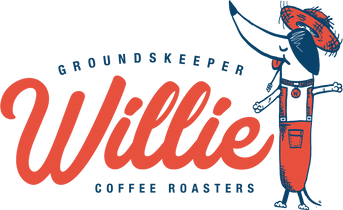New Release - Bolivia, Sol De Manana
Sol de la Mañana came about in 2014, after 15 local producers approached Pedro Pablo and asked for help. “We realized that we had a certain responsibility in not only managing our own farms, but also helping the producers that had been delivering coffee to us for many years. As a family, we saw the responsibility to work against this trend and save Bolivian coffee culture, because if we did not take it, Bolivian coffee would have slowly disappeared. We see this as a duty we owe to Bolivia.”

After much discussion, the Rodríguez family identified that the only way they could help producers and combat the country’s falling production was by finding a way to help increase the average producer’s yield:
When the program began, the average production of a single producer was 2.5 bags of green coffee per hectare. Given the average producer has 1-3 hectares of land, this meant they were only producing around 10 bags of coffee to survive.
To make a liveable income out of coffee production, farmers in Bolivia needed to be producing around 30 bags of coffee per hectare. The Rodríguez family decided to set up a curriculum that would tackle this problem head on, focusing on giving producers the skills and training they needed to their increase yields and improve the quality of their output.
One of the main goals of the program was to teach enrolled producers to take a more systematic and scientific approach to coffee farming, to help them increase their productivity and yields.
How the Program Works
The Sol de La Mañana program is set up as a ‘school for producers,’ starting with the basics. The curriculum focuses on one aspect of farming at a time and covers things such as how to build a nursery, how and when to use fertiliser, how to prune and how to selectively pick.
The Rodriguez family have also built a model farm and nursery at their Buena Vista mill, which is located in the producing region of Caranavi. The location of these is key, as it is close by to many of the enrolled producers. “We want to show the producers how to set up good practices right from the start. We show them how to select good seedlings and prepare and look after the soil and care for the trees.” Historically, most producers have not regularly pruned their trees, as they worry about the impact on yield. “We educate them about the importance of systematic pruning and show them how to do it.”

Using modern techniques learnt by Pedro Pablo while studying agriculture in Honduras, and with the assistance of international consultants, Agricafe introduced a level of expertise to coffee farming that was new to producers in the region.
Initially, these new techniques raised some eyebrows among their neighbours, though they have since been won over by the program’s successes, “Some producers believed we were growing coca or had magic coffee beans as they had never seen coffee grow like this,” Pedro Pablo remembers.
The Results of the Program
Today, Sol de La Mañana has grown to support over 100 small holder producers in the Caranavi region. The program’s impact has been profound, and far beyond the Rodríguez family’s initial expectations. Production was up 200% in 2020, and the ripple effect of the familiy’s work is starting to be evident, as neighbouring farms have started to emulate the Sol de la Mañana producers’ farming techniques. The key to its success, according to Daniela, is that the producers feel empowered.

The Sol de la Mañana program has required a huge investment of capital, time and resources from the Rodríguez family. But they genuinely believe in Bolivian coffee and care deeply about helping the producers they work with realise their potential and improve their lives.
We look forward to supporting the Rodriguez family and their fellow producers in future years. Their exceptional coffee and community impact is inspiring to say the least.

